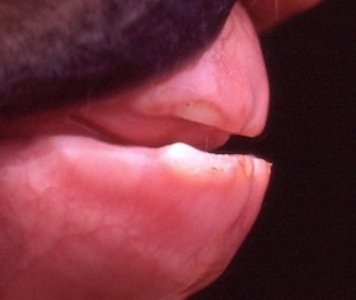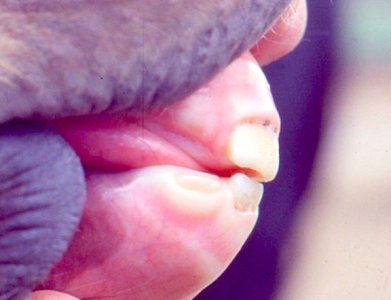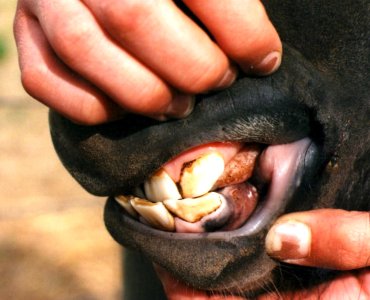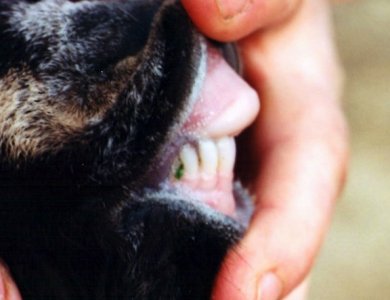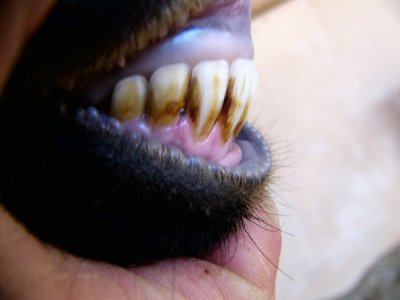science and homeopathy do not mesh. nevertheless, I assume there is some epidemiology on the human birth defect/cancer clusters being claimed?
You are using an out of date browser. It may not display this or other websites correctly.
You should upgrade or use an alternative browser.
You should upgrade or use an alternative browser.
Lost one this Morning
- Thread starter sstterry
- Start date

Help Support CattleToday:
Redgully
Well-known member
I grew up on raw milk too, best thing ever. What I'm saying is these days many people read raw milk is good for you so find a source for it with no idea what they're doing and children have died here because of it.I grew up drinking milk straight from the bulk tank, didn't seem to stunt my or my siblings growth. Just an observation Red. I'd put a smiley face here if I knew how. You have a point on the organic food, case in Maine where folks had started an organic farm, then discovered high amounts of forever chemicals both in their produce and in their children's blood. Seems sludge from the local town's waste treatment facility had been spread on the farm decades before they moved there. Last I heard they were mighty anxious, and I don't blame them.
Travlr
Well-known member
Sure they do. Most meds started out as homeopathic treatments. Aspirin comes from Spiraea, a biological genus of shrubs that includes natural sources of the drug's key ingredient: salicylic acid. This acid, resembling what's in modern-day aspirin, can be found in jasmine, beans, peas, clover and certain grasses and trees.science and homeopathy do not mesh. nevertheless, I assume there is some epidemiology on the human birth defect/cancer clusters being claimed?
Redgully
Well-known member
I agree im no scientist, it's when people come to my place telling me this and that and preach doom and gloom and i show them the exact opposite to what they were telling me would happen makes me think they are barking up the wrong tree. We have two dams here and a winter creek. Still get tadpoles and hard to sleep at night from the frog noises, but yeah, definitely noticed a big reduction in tadpoles since i was a kid. Scientists believe it is actually wetting agent used, not chemicals themselves. Most likely a combination of the two along with chemical fertilisers but again a lady started ranting at me it was glysophate because she had read and heard......."... yet on our place it hasn't."
Really??? Have you got any ponds? On my place in Arkansas I could dip a hundred tadpoles with a quart jar without trying... in 1981. Ten years later they were practically gone. Now there are so few frogs that it's hard to find places where they are. As a kid every kid I know had frogs and snakes in their pockets after a walk in the woods.
And you've never heard of Thalidomide babies?

Thalidomide - Wikipedia
en.wikipedia.org
Trying to explain away investigated results of a scientific study after stating that you aren't a scientist is like believing the earth is flat because you aren't an astronomer. NOT that you shouldn't always question authority... but that unless you have real training in the field you have no legitimate frame of reference. It would be like some urban dwelling vegan coming out to your ranch and accusing you of abusing your animals because you don't give them coats.
I have friends who were thalidomide babies and that was devastating.
Redgully
Well-known member
Do you have varroa mite there? Im not going to say our earthworms haven't declined, wouldn't know, but still plenty there and i was told by a lady claiming if we had ever used glysophate our soil would be dead and no earth worms will come back for 40 years......we randomly dug a few holes full of earth worms......she's still going around telling people this and saw it for herself. I do apply soil microbes so maybe that is why.I was in a hurry earlier so I forgot to mention that since over a 25 year period I took measurements, photos and samples. Then published what my colleagues and I found in a peer reviewed journal. That is what is called science. You dug up a shovel full of dirt a couple of different years and because there were earthworms in the soil you, by your own observations and generalizations, but not science, decided that the earthworms were doing find and hadn't declined. In order to determine scientifically if you were correct in your "own observations and generalization" you would have had to take out a one foot by one foot square of soil every 5 years at least and count the earthworms in that soil, keeping a record of how many worms there were each time you did that. That would have been actual science and better proof of what you say. Regarding honeybees, we had a wild hive in the side of an old house on our land when we moved here in 1979. They were there until three years ago, when they either moved to somewhere else or died. Since they were where I couldn't get to them, I don't know why they are no longer living in the side of the old house. Thank you for the interesting discussion.
We had so many Western Toads in our yard and garden in early spring of 1994 and all years before that we had to use a flashlight at night to keep from stepping on them. By fall of 1994, the year a lot of imidacloprid was used on fields in states upwind of our area in western Montana, we couldn't find a single toad. We didn't see any toads at all the next two springs and summers - 1995 and 1996. I finally found a very small toad in fall of 1997 that had no foot formed on the right leg. We have had 5 or 6 here this year. Thank you for mentioning your toads. We have very few snakes and no salamanders any more."... yet on our place it hasn't."
Really??? Have you got any ponds? On my place in Arkansas I could dip a hundred tadpoles with a quart jar without trying... in 1981. Ten years later they were practically gone. Now there are so few frogs that it's hard to find places where they are. As a kid every kid I know had frogs and snakes in their pockets after a walk in the woods.
And you've never heard of Thalidomide babies?

Thalidomide - Wikipedia
en.wikipedia.org
Trying to explain away investigated results of a scientific study after stating that you aren't a scientist is like believing the earth is flat because you aren't an astronomer. NOT that you shouldn't always question authority... but that unless you have real training in the field you have no legitimate frame of reference. It would be like some urban dwelling vegan coming out to your ranch and accusing you of abusing your animals because you don't give them coats.
Travlr
Well-known member
Just to be clear, I'm not saying the amphibians are gone because of chemicals. Just an example of how things have changed over time if we are aware enough to notice. At least some portion of these animals has declined due to human activities.We had so many Western Toads in our yard and garden in early spring of 1994 and all years before that we had to use a flashlight at night to keep from stepping on them. By fall of 1994, the year a lot of imidacloprid was used on fields in states upwind of our area in western Montana, we couldn't find a single toad. We didn't see any toads at all the next two springs and summers - 1995 and 1996. I finally found a very small toad in fall of 1997 that had no foot formed on the right leg. We have had 5 or 6 here this year. Thank you for mentioning your toads. We have very few snakes and no salamanders any more.
I do know there are far less insects gathering under the porch light in the evening... and we could once catch Cecropia and Luna moths and all kinds of swallowtail butterflies in a single day. Now they are so rare I don't see them every year. I saw a Monarch a couple of weeks ago, the first I've seen in decades. We've been spreading milkweed seed in all the ditches around here so they can eat, and maybe that's why. We see all kinds of information about bees... but rarely anything about the rest of the insect kingdom disappearing. And birds are starting to decline. We had a place we walked and there was a Meadowlark every tenth of a mile or so... and I've only seen one in the last three years. Plenty of starlings though.
wbvs58
Well-known member
I don't doubt that there are a lot of cause and effect from many chemicals we use and industrial waste products but back to what we do and that is raise cattle I have not seen these defects in cattle I raise here, anecdotally just like you described J Hoy in the animals on your farm when you were growing up. Nor have I read on these pages these bite defects that you are talking about with every calf born dead or weak that is occaisionally talked about. You say that these things never happened before the introduction of these chemicals but what is the baseline? Like most things once you start looking a lot of marginal things crop up but all these defects you describe did occur well before the dates that you quote. I have photos and descriptions in all my old textbooks that well and truly predate the introduction of these chemicals. It is just that the chemicals are now a good scapegoat for them. I keep an open mind on this subject and don't discount their effect, you are obviously very passionate about this, I find that reality is often somewhere in the middle.
Can the world afford to stop using chemicals for food production? I feel that the supply and demand for food is very delicately poised at the moment. Yes we can produce food without using chemicals but will we produce enough and if there is a shortfall are we prepared for the famine in some countries that are always teetering on the borderline. I guess it gets down to the fact that our paddock, planet earth is over stocked and until governments do something to curb population growth with birth control then the problem is going to get worse.
Ken
Can the world afford to stop using chemicals for food production? I feel that the supply and demand for food is very delicately poised at the moment. Yes we can produce food without using chemicals but will we produce enough and if there is a shortfall are we prepared for the famine in some countries that are always teetering on the borderline. I guess it gets down to the fact that our paddock, planet earth is over stocked and until governments do something to curb population growth with birth control then the problem is going to get worse.
Ken
Redgully
Well-known member
Insects are still in force here except for crickets, they have vanished. Bloody locusts are still doing their thing though. Our bird populations are exploding, ducks, galahs, lorikeets, corellas etc. I'm seeing families of birds here that I've never seen before but are listed as native to our area.Just to be clear, I'm not saying the amphibians are gone because of chemicals. Just an example of how things have changed over time if we are aware enough to notice. At least some portion of these animals has declined due to human activities.
I do know there are far less insects gathering under the porch light in the evening... and we could once catch Cecropia and Luna moths and all kinds of swallowtail butterflies in a single day. Now they are so rare I don't see them every year. I saw a Monarch a couple of weeks ago, the first I've seen in decades. We've been spreading milkweed seed in all the ditches around here so they can eat, and maybe that's why. We see all kinds of information about bees... but rarely anything about the rest of the insect kingdom disappearing. And birds are starting to decline. We had a place we walked and there was a Meadowlark every tenth of a mile or so... and I've only seen one in the last three years. Plenty of starlings though.
Redgully
Well-known member
And bin chickens, struth, they are reaching plague proportions. Bloody smart and tough as nails, you'll drill one and it will drop, get up and take off again.
origins of medicines isn't what homeopathy means. https://en.wikipedia.org/wiki/HomeopathySure they do. Most meds started out as homeopathic treatments. Aspirin comes from Spiraea, a biological genus of shrubs that includes natural sources of the drug's key ingredient: salicylic acid. This acid, resembling what's in modern-day aspirin, can be found in jasmine, beans, peas, clover and certain grasses and trees.
basically it is using things that are diluted to the point of not existing anymore.
I don't know about homeopathy in general. Don't use it. I just found by accident that when I gave a newborn animal with an underbite a Homeopathic Cell Salt tablet at least twice a day, that science indicates stimulates the cells to uptake the calcium the cells need to function at an optimum level, the underdeveloped upper facial bone grew to normal size. When the premaxillary bone had grown to normal, the youngster had a normal bite. Tried it on overbite, contracted tendons, crooked legs and lactose intolerance in newborns. All issues were gone on the affected newborn within 3 days to two weeks, depending on the issue. Not even people who make, sell or use homeopathic products, even the Cell Salts, knew that the Calc. Phos. would do this. See the attached photos of a filly foal that was born with its lower incisors over a half inch forward of its upper teeth. Horses, unlike ruminants, have upper teeth, while ruminants have a dental pad on the anterior of the premaxillary bone. It was a neighbor's foal and I didn't get the before photo until the foal was 48 hours old. In just two days the underdeveloped facial bones had visibly grown, so the before photo wasn't as bad as it would have been if I had gotten the photo right when it was born. The third photo is of a different foal that was 7 month old that was born with about the same amount of underbite but didn't receive treatment by giving the Calc. Phos. tablet morning and night. It had the underbite its whole life. I posted the information on Cattletoday about how to treat an underbite because I saw quite a few photos of calves with underbite posted on Cattletoday. It is up to the livestock or pet owner whether he or she wants to try it. Same with parents and their children.science and homeopathy do not mesh. nevertheless, I assume there is some epidemiology on the human birth defect/cancer clusters being claimed?
Attachments
greybeard
Well-known member
Redgully, did you check them earthworms for overbite?
callmefence
Keyboard cowboy
Travlr
Well-known member
I hope everyone here has a sense of humor... because THAT is FUNNY. Brutal... but funny. LOL
I don't know about homeopathy in general. Don't use it. I just found by accident that when I gave a newborn animal with an underbite a Homeopathic Cell Salt tablet at least twice a day, that science indicates stimulates the cells to uptake the calcium the cells need to function at an optimum level, the underdeveloped upper facial bone grew to normal size. When the premaxillary bone had grown to normal, the youngster had a normal bite. Tried it on overbite, contracted tendons, crooked legs and lactose intolerance in newborns. All issues were gone on the affected newborn within 3 days to two weeks, depending on the issue. Not even people who make, sell or use homeopathic products, even the Cell Salts, knew that the Calc. Phos. would do this. See the attached photos of a filly foal that was born with its lower incisors over a half inch forward of its upper teeth. Horses, unlike ruminants, have upper teeth, while ruminants have a dental pad on the anterior of the premaxillary bone. It was a neighbor's foal and I didn't get the before photo until the foal was 48 hours old. In just two days the underdeveloped facial bones had visibly grown, so the before photo wasn't as bad as it would have been if I had gotten the photo right when it was born. The third photo is of a different foal that was 7 month old that was born with about the same amount of underbite but didn't receive treatment by giving the Calc. Phos. tablet morning and night. It had the underbite its whole life. I posted the information on Cattletoday about how to treat an underbite because I saw quite a few photos of calves with underbite posted on Cattletoday. It is up to the livestock or pet owner whether he or she wants to try it. Same with parents and their children.
Sorry, nothing can fix an animal that is bred to have an underbite. The underbite on a bulldog is because of its genes, of course. The underbite that happens to newborns exposed to toxins is epigenetic (look it up) and the underdeveloped bones can be stimulated to grow to be normal in size because they are genetically programmed to be normal in size. Callmefence, you are very funny!
The only newborn animal I had with overbite to try the Calc. Phos. on was a newborn Nubian goat kid. The first photo shows the amount of overbite she had. I forgot to take an after photo until she was around a year old which is the second photo. Her lower jaw had grown to normal size long before that. The lower jaw took a bit longer than the premaxillary bone to grow to normal, about 3 weeks for the overbite and 2 weeks for an underbite.
Attachments
There are actually hundreds, most likely more like thousands, of studies that show that certain pesticides cause cancer and birth defects. Most are done on lab animals, like mice.science and homeopathy do not mesh. nevertheless, I assume there is some epidemiology on the human birth defect/cancer clusters being claimed?
Redgully, since you live in Australia, the pesticides used and crops raised are likely to be somewhat different than those used here in western U.S. I am glad to hear that your birds and some of the insects they eat are doing so well. I have no idea whether domestic ruminants in Australia have birth defects. I haven't been there to examine the bites on animals in your neck of the woods.Insects are still in force here except for crickets, they have vanished. Bloody locusts are still doing their thing though. Our bird populations are exploding, ducks, galahs, lorikeets, corellas etc. I'm seeing families of birds here that I've never seen before but are listed as native to our area.
View attachment 19033
I totally agree with you that humans had better do something about population growth. That is the primary problem. It will no longer be a problem when everything including humans go extinct, which is what will happen if the other animals go extinct. We are reportedly in a mass extinction of other species right now. If it gets worse, that will not be good for the burgeoning human populations. There are a lot of people in the world now that are in the process of starving to death as we speak.I don't doubt that there are a lot of cause and effect from many chemicals we use and industrial waste products but back to what we do and that is raise cattle I have not seen these defects in cattle I raise here, anecdotally just like you described J Hoy in the animals on your farm when you were growing up. Nor have I read on these pages these bite defects that you are talking about with every calf born dead or weak that is occaisionally talked about. You say that these things never happened before the introduction of these chemicals but what is the baseline? Like most things once you start looking a lot of marginal things crop up but all these defects you describe did occur well before the dates that you quote. I have photos and descriptions in all my old textbooks that well and truly predate the introduction of these chemicals. It is just that the chemicals are now a good scapegoat for them. I keep an open mind on this subject and don't discount their effect, you are obviously very passionate about this, I find that reality is often somewhere in the middle.
Can the world afford to stop using chemicals for food production? I feel that the supply and demand for food is very delicately poised at the moment. Yes we can produce food without using chemicals but will we produce enough and if there is a shortfall are we prepared for the famine in some countries that are always teetering on the borderline. I guess it gets down to the fact that our paddock, planet earth is over stocked and until governments do something to curb population growth with birth control then the problem is going to get worse.
Ken
